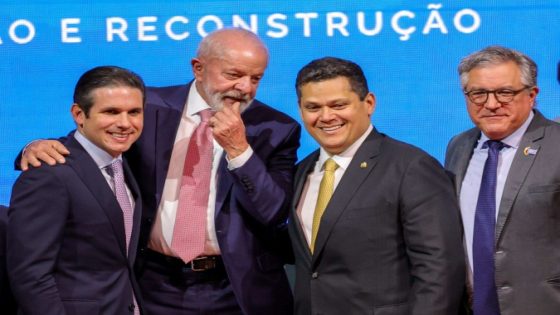The Brazilian Senate has officially established its permanent committees for 2025, with a majority aligned with President Luiz Inácio Lula da Silva. This significant shift raises questions about how these changes will impact governance and policy-making in Brazil.
- Senate commissions installed for 2025
- Otto Alencar leads Constitution and Justice committee
- Renan Calheiros heads Economic Affairs committee
- Nelsinho Trad chairs Foreign Relations committee
- Flávio Bolsonaro leads Security Public committee
On February 20, 2025, the Senate elected key leaders for various committees, setting the stage for the next two years. Will this new composition facilitate smoother legislative processes for the current administration?
Brazil’s Senate Committees: Who’s in Charge and What It Means for Governance
With the recent appointments in the Brazilian Senate, how will these changes influence the legislative landscape? The new committee leaders, primarily from Lula’s coalition, are expected to push forward the government’s initiatives. This shift could streamline the approval of crucial policies aimed at economic recovery and social reform.
Key Senate Committees and Their New Leaders: A Closer Look
The Senate’s committee structure is vital for shaping Brazil’s laws and policies. Here are the newly appointed leaders of key committees:
- Constitution and Justice (CCJ): Otto Alencar (PSD-BA)
- Economic Affairs (CAE): Renan Calheiros (MDB-AL)
- Foreign Relations (CRE): Nelsinho Trad (PSD-MS)
- Science and Technology (CCT): Flávio Arns (PSB-PR)
Impact of Committee Leadership on Legislative Efficiency
The leadership of the CCJ by Otto Alencar is particularly noteworthy. His strong ties with the executive branch may expedite the review process for significant legislation. This could lead to faster implementation of policies that address pressing national issues.
Economic Focus: Priorities for the Economic Affairs Committee
Renan Calheiros, leading the CAE, has emphasized the need for fiscal responsibility. His commitment to rationalizing public spending could influence economic strategies, aiming for sustainable growth. This focus is crucial for both domestic stability and international confidence in Brazil’s economy.
Broader Implications for U.S.-Brazil Relations
The newly formed committees not only affect Brazil’s internal governance but also have implications for U.S.-Brazil relations. As Brazil navigates its political landscape, U.S. businesses and policymakers will be keenly watching how these changes impact trade, investment, and bilateral cooperation.

































